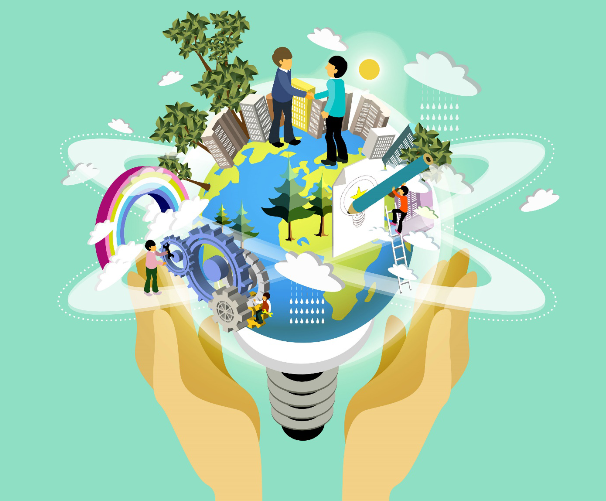|
Equitable and resilient recovery from the pandemic towards the health SDGs: The 2021 SDG3 GAP progress report
WHO and 12 other signatory agencies to the Global Action Plan for Healthy Lives and Well-being for All (SDG3 GAP) have released their second progress report, Stronger collaboration for an equitable and resilient recovery towards the health-related SDGs. This report presents progress achieved, especially at country level, where SDG3 GAP is being implemented in 37 countries, with its long-term, forward-looking SDG focus and as a platform to support countries’ equitable and resilient recovery from the COVID-19 pandemic. The report also identifies challenges encountered over the last year, acknowledging the important roles that countries, agencies’ boards and donors play in setting the right incentives for effective collaboration among SDG3 GAP agencies.
“The GAP partners have shown their unwavering commitment to countries during the pandemic," said Dr Tedros Adhanom Ghebreyesus, WHO Director-General. "Collaboration is now more relevant than ever. The GAP provides the platform to improve collaboration in the multilateral system to support countries to recover from the pandemic and drive progress towards the health-related SDGs, with a focus on equity and enabled by stronger primary health care.”
The report highlights ways in the which SDG3 GAP agencies are integrating work at country level, reducing fragmentation through joint work in support of national priorities and plans, creating synergies and increasing alignment within the broader health ecosystem – for example, incorporating parts of the Every Woman, Every Child agenda and working jointly with the Health Data Collaborative (HDC) in countries. Many countries are prioritizing primary health care (PHC) and sustainable financing as well as data for improving equity to understand people’s lives and to know where investments need to be made to reach the most left behind. At a recent “PHC for UHC Mission to Pakistan”, SDG3 GAP agencies renewed their commitment to better align their support for the roll-out of a universal health coverage (UHC) benefit package. Dr Faisal Sultan, Minister of Health, Special Assistant to the Prime Minister, expressed his appreciation of the mission's work, noting that “implementation of the UHC benefit package will facilitate the strengthening of PHC services and securing sustainable financing will further support us to achieve UHC, ensuring no one is left behind.”
Looking ahead, the agencies will support additional countries under the SDG3 GAP approach. The agencies are committed to reviewing progress and have recently developed a monitoring framework to enable continued learning and enhance shared accountability.
Quotes from SDG3 GAP agencies
Dr Seth Berkley, CEO, Gavi, the Vaccine Alliance: “The COVID-19 pandemic is exacerbating inequities in many countries. The poorest and most marginalised communities have been hardest hit. Today, in the 68 countries Gavi supports, nearly 10 million children still go without any basic, routine vaccines every year. Equitable and resilient recovery will require us to work together to reach these zero-dose children, so that no one is left behind.”
Dr Muhammad Pate, Director of the Global Financing Facility for Women, Children and Adolescents: Partnership is at the heart of the GFF's country-led model. COVID-19 has made it even clearer that collaboration is critical to fight the pandemic and achieve the health-related SDGs. Working together GAP agencies have accelerated their efforts for stronger partner alignment, engagement and accountability behind country-led response and recovery efforts to reclaim the health gains and build a more inclusive and resilient recovery.”
Peter Sands, Executive Director of the Global Fund: "Today’s global health challenges call for an integrated approach and intensive collaboration between all partners. We are committed to working together to deliver more effective and efficient support to countries, build the path towards an equitable and resilient recovery from the COVID-19 pandemic and accelerate progress towards achieving Sustainable Development Goal 3: health and well-being for all."
Guy Ryder, Director-General of the International Labour Organization
“The ILO welcomes the progress for 2020 and as a new member looks forward to engaging with all SDG3-GAP partners in 2021 and beyond. The COVID-19 crisis has clearly demonstrated the interaction between health, social factors and decent work. It has highlighted the critical need for investments in all three areas. This will foster recovery and lead to a more sustainable, equitable development path. Equally, investments in the health of workers and of care workforce are vital to make progress towards universal health coverage. If we are to achieve SDG3, increased cooperation is needed. By joining this partnership the ILO reaffirms its commitment to support countries during this pandemic and beyond, through a multilateral and coherent approach.”
Winnie Byanyima, Executive Director of UNAIDS:
“We have seen with HIV and now with COVID-19 the critical role communities play in connecting key and vulnerable populations to essential health and social services, in ensuring gender equality, inclusion and rights-based approaches to health and social care, and in reducing inequalities. Resilient health systems rely on communities, this is why they feature prominently as a key pillar in the Global Action Plan and why they must be fully engaged, supported and funded."
Achim Steiner, Administrator of the United Nations Development Programme:
The COVID-19 pandemic affects everyone everywhere, but it is having a disproportionate impact on the world’s most vulnerable. By 2030, eight out of ten people pushed into poverty, as a result of COVID-19, will live in low and medium human development countries. Greater cooperation is the only way to defeat COVID-19 and restore and accelerate progress on the SDGs and on the pledge to leave no one behind. The SDG 3 Global Action Plan (GAP) is enhancing collaboration to support countries with their COVID-19 response and to lay the foundation for an equitable and sustainable recovery.”
|



